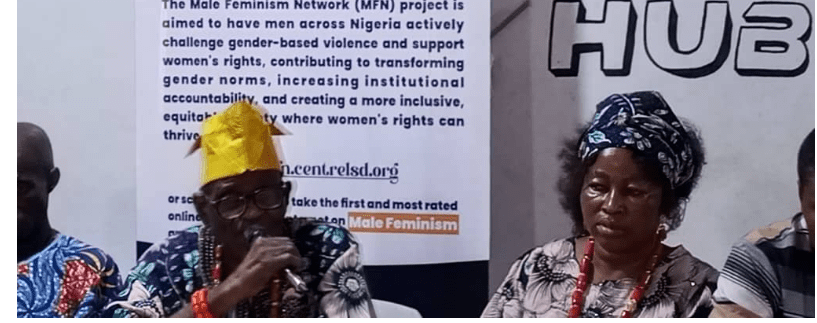In an effort to curb Gender-Based Violence (GBV) and reshape perceptions about women’s rights, the Male Feminist Network was formally launched in Osun State on Thursday, bringing together men from traditionally male-dominated occupations.
Commercial motorcyclists, welders, panel beaters and mechanics converged at the Oroki Hub Hall in Osogbo for the unveiling of the capacity-building programme under the Male Feminist Project.
Implemented by the Nigeria Institute for Social and Development (NISD) with support from the Ford Foundation, the project is designed to train men as active allies in advancing gender equality.
The initiative, which will cover Osun, Oyo, Ekiti and Ondo states, aims to equip participants with the knowledge and language to promote women’s rights across their unions, workplaces and communities.
Segun Ojo, Programme Officer for the Male Feminist Project at NISD, said the programme addresses a deep “capacity and awareness gap” among men.
“We are transforming these men into evangelists,” he said.
“They hold weekly and monthly meetings in their associations. When they return equipped with the right knowledge and language, they become a multiplier force that can reach thousands of other men and help end gender-based violence from the grassroots.”
Mr Dare Adeoye, NISD’s Male Feminist Network Consultant in Osun State, debunked misconceptions about feminism, stressing that it is a collaborative movement.
“True feminism is a joint effort to liberate women from oppression and give them their rightful place,” he said. “It is not about women becoming superior to men. It is about equity, and men have a critical role to play as partners.”
Adeoye also faulted the failure of most Nigerian states, including those in the Southwest, to implement the 35 per cent affirmative action for women in political appointments, describing it as a case of government “not practising what it preaches.”
Traditional ruler, Professor Rasheed Adegboyega Sanni, the Baale of Araromi Community in Osogbo, said the training challenges long-standing cultural beliefs that undermine women’s roles.
“This programme has opened our eyes,” he said. “As a community leader, I will ensure this message reaches every household.
The government must support it with funding and sustained sensitisation through agencies like the National Orientation Agency.”
The Osun State Ministry of Women Affairs, Children and Social Welfare pledged its support.
Olawoyin Tayo from the ministry’s Gender Department highlighted the state’s Sexual Assault Referral Centre (SARC) as an ongoing mechanism for addressing cases of gender-based violence.
“We are glad this project is sensitising our men,” he said. “When men stand with women, our women can stand tall and bold. The ministry is ready to deepen collaboration with NISD and other civil society partners.”
Participants at the launch welcomed the initiative. One of them, Jimoh Azeez Adekunle, said the training had corrected long-held misconceptions.
“Lack of proper understanding has been our biggest problem,” he said. “Now we know better, and we will spread the good news.”
















